第79章 XIV(1)
RECENT CAMPAIGNS
The interval between the winning of Idaho and Utah in 1896 and that of Washington in 1910 s eemed very long to lovers of the Cause. We were working as hard as ever--harder, indeed, for the opposition against us was growing stronger as our opponents realized what triumphant woman suf- f rage would mean to the underworld, the grafters, and the whited sepulchers in public office. But in 1910 we were cheered by our Washington victory, followed the next year by the winning of California.
Then, with our splendid banner year of 1912 came the winning of three states--Arizona, Kansas, and Oregon--preceded by a campaign so full of vim and interest that it must have its brief chronicle here.
To begin, we conducted in 1912 the largest num- b er of campaigns we had ever undertaken, working in six states in which constitutional amendments were pending--Ohio, Michigan, Wisconsin, Oregon, Arizona, and Kansas. Personally, I began my work in Ohio in August, with the modest aspiration of speaking in each of the principal towns in every one of these states. In Michigan I had the invaluable assistance of Mrs. Lawrence Lewis, of Philadelphia, and I visited at this time the region of my old home, greatly changed since the days of my girlhood, and talked to the old friends and neighbors who had turned out in force to welcome me. They showed their further interest in the most satisfactory way, by carrying the amendment in their part of the state.
At least four and five speeches a day were expected, and as usual we traveled in every sort of conveyance, from freight-cars to eighty horse-power French auto- m obiles. In Eau Clair, Wisconsin, I spoke at the races immediately after the passing of a procession of cattle. At the end of the procession rode a wom- a n in an ox-cart, to represent pioneer days. She wore a calico gown and a sunbonnet, and drove her ox-team with genuine skill; and the last touch to the picture she made was furnished by the presence of a beautiful biplane which whirred lightly in the air above her. The obvious comparison was too good to ignore, so I told my hearers that their women to-day were still riding in ox-teams while the men soared in the air, and that women's work in the world's service could be properly done only when they too were allowed to fly.
In Oregon we were joined by Miss Lucy Anthony.
There, at Pendleton, I spoke during the great ``round up,'' holding the meeting at night on the street, in which thousands of horsemen--cowboys, Indians, and ranchmen--were riding up and down, blowing horns, shouting, and singing. It seemed impossible to interest an audience under such con- d itions, but evidently the men liked variety, for when we began to speak they quieted down and closed around us until we had an audience that filled the streets in every direction and as far as our voices could reach. Never have we had more courteous or enthusiastic listeners than those wild and happy horsemen. Best of all, they not only cheered our sentiments, but they followed up their cheers with their votes. I spoke from an automobile, and when I had finished one of the cowboys rode close to me and asked for my New York address. ``You will hear from me later,'' he said, when he had made a note of it. In time I received a great linen banner, on which he had made a superb pen-and-ink sketch of himself and his horse, and in every corner sketches of scenes in the different states where women voted, together with drawings of all the details of cowboy equipment. Over these were drawn the words:
WOMAN SUFFRAGE--WE ARE ALL FOR IT.
The banner hangs to-day in the National Head- q uarters.
In California Mr. Edwards presented me with the money to purchase the diamond in Miss Anthony's flag pin representing the victory of his state the preceding year; and in Arizona one of the high- l ights of the campaign was the splendid effort of Mrs. Frances Munds, the state president, and Mrs.
Alice Park, of Palo Alto, California, who were carry- i ng on the work in their headquarters with tre- m endous courage, and, as it seemed to me, almost unaided. Mrs. Park's specialty was the distribu- t ion of suffrage literature, which she circulated with remarkable judgment. The Governor of Arizona was in favor of our Cause, but there were so few active workers available that to me, at least, the winning of the state was a happy surprise.
In Kansas we stole some of the prestige of Champ Clark, who was making political speeches in the same region. At one station a brass-band and a great gathering were waiting for Mr. Clark's train just as our train drew in; so the local suffragists per- s uaded the band to play for us, too, and I made a speech to the inspiring accompaniment of ``Hail to the Chief.'' The passengers on our train were great- l y impressed, thinking it was all for us; the crowd at the station were glad to be amused until the great man came, and I was glad of the opportunity to talk to so many representative men--so we were all happy.
In the Soldiers' Home at Leavenworth I told the old men of the days when my father and brothers left us in the wilderness, and my mother and I cared for the home while they fought at the front--and I have always believed that much of the large vote we received at Leavenworth was cast by those old soldiers.